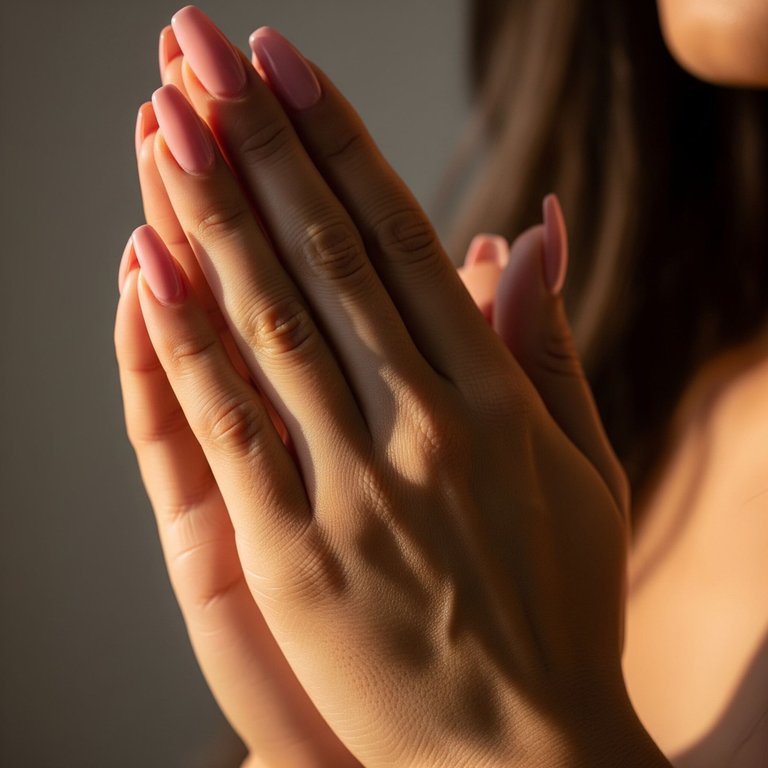Theocentric Prayer in a Self-Centered Age
Despite the bad weather since Sunday, our chapel service just concluded. I praise the Lord for giving us technology so that we can gather online and continue our worship.
The passage is from the Old Testament. It is a king's prayer after the completion of the temple. This prayer is also a praise. Based on the text, the chaplain asked the question:
Why should we exalt and worship the Lord wholeheartedly and freely?
I think he got this question from the preceding verse, where the chronicler recorded:
The people rejoiced at the willing response of their leaders, for they had given freely and wholeheartedly to the Lord.
The answer to the above question is sound, emphasizing God's provision, providence, and power. I would like to express a similar idea differently, concerning contemporary attitudes towards prayers today.
One, since today's consensus denies God's existence, any idea that man keeps praying is ridiculous and primitive. We don't need a Sky Daddy or an Invisible Friend, for we are alone in this side of life. We can rely on no one but ourselves.
Two, those who still maintain the discipline of prayer, though it's contrary to the dominant culture, fall short of the kind of prayer that we found in 1 Chronicles 29, verses 10 to 13:
10 David praised the Lord in the presence of the whole assembly, saying, “Praise be to you, Lord, the God of our father Israel, from everlasting to everlasting. 11 Yours, Lord, is the greatness and the power and the glory and the majesty and the splendor, for everything in heaven and earth is yours. Yours, Lord, is the kingdom; you are exalted as head over all. 12 Wealth and honor come from you; you are the ruler of all things. In your hands are strength and power to exalt and give strength to all. 13 Now, our God, we give you thanks, and praise your glorious name.

Today's prayer is more focused on complaining and personal interests. Yes, there is a place for lament in biblical prayers, especially in the book of Psalms. However, the kind of prayer that is primarily preoccupied with material things such as money, cars, house, promotion, and the like, is foreign to biblical prayers, for the latter is theocentric, and such is the kind of prayer that King David prayed.
If we want to see a spiritual revival in our time, it must begin in our closet, in the way we pray. To address this anomaly, I think the above prayer provides us with the pattern to shape our prayers. Three things are clear in King David's theocentric prayer.
What insights can we learn from David's prayer to shape our prayers?
One, our prayers should be focused on praising the Lord as the Eternal God, verses 10, 13.
The phrase "from everlasting to everlasting" pertains to God's eternal character. From a supranatural worldview, it is unthinkable to hear a man who has a beginning to think of the possibility that such an eternal God does not exist. The God of the Bible is the original Being, and man is created in His image. What an audacity on the part of man to reject the existence of the original and the source of his being.
However, for those who fall under the spell of Richard Dawkins' The God Delusion, the above confidence is considered intellectually lazy and irresponsible. The sophisticated, scientific, and reasonable man considers the eternal God of the Bible as
. . . the most unpleasant character in all fiction: jealous and proud of it; a petty, unjust, unforgiving control-freak; a vindictive, bloodthirsty ethnic cleanser; a misogynistic, homophobic, racist, infanticidal, genocidal, filicidal, pestilential, megalomaniacal, sadomasochistic, capriciously malevolent bully (p. 57).
Two, our prayers should recognize God as the Owner of everything, verses 11-12a.
All things fall under the word "everything". The chronicler enumerates greatness, power, glory, majesty, splendor; everything in heaven and earth, the kingdom, wealth, and honor belong to Him. There is nothing, no one here on earth that is not God's, and that includes you. Even those who deny his existence belong to Him. Sooner or later, they will know it.
Since God is the owner of everything, this biblical idea serves as a corrective to two dominant modern anomalies when it comes to property.
One, the claim of state ownership of all things is anti-theistic for the state is no God.
Two, private ownership is not absolute, but derivative. It derives its basis from the fact that God is the Ultimate Owner of all things. Private property, therefore, implies accountability and stewardship. Man is accountable before God in the way he uses the property entrusted to him.
Lastly, our prayers should acknowledge God's rulership over all things, verses 11b-12.
God is "head over all," and such headship is not empty. It is his prerogative to give wealth and honor, strength and power to whomever He pleases.
To sum it up, King David’s God-centered prayer in 1 Chronicles 29 serves as a corrective to today’s self-centered and skeptical view of prayer. It is a call for a return to theocentric praise.

!PIZZA
DEAD RELIGION FOR CRIMINALLY INSANE... LIKE MOST/ALL... HEAL TOURSELF, DO NOT PUSH YOUR SHIT
$PIZZA slices delivered:
@dianarose302005(4/5) tipped @axietrashgame
Come get MOONed!